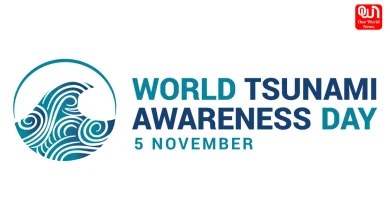Avoid These 5 Foods If You Have High Blood Pressure
High Blood Pressure is extremely common these days due to the lifestyle people have and their eating habits! Change what you eat to manage your BP!
Improve your eating habits to manage High Blood Pressure
High blood pressure, or hypertension, is a common health condition that can increase the risk of serious complications such as heart disease, stroke, and kidney damage. While medication and lifestyle changes are often prescribed to manage hypertension, dietary modifications can play a crucial role in controlling blood pressure levels. Here are five foods to avoid if you have high blood pressure:
1. High-Sodium Foods:
Excessive sodium intake is a major contributor to high blood pressure because it can cause the body to retain water, leading to increased blood volume and pressure on the arteries. To manage hypertension, it’s essential to limit consumption of high-sodium foods, including:
- Processed Foods: Processed and packaged foods such as canned soups, sauces, condiments, deli meats, and frozen meals often contain high levels of sodium for flavor and preservation. Opt for fresh, whole foods whenever possible and check nutrition labels for sodium content.
- Fast Food: Fast food items like burgers, fries, pizza, and fried chicken are notoriously high in sodium due to added salt during processing and cooking. Choose healthier alternatives or prepare homemade versions with lower sodium ingredients.
- Snack Foods: Snack foods like chips, pretzels, popcorn, and salted nuts are often high in sodium and can contribute to excessive salt intake. Look for low-sodium or unsalted varieties, or choose healthier snacks like fresh fruits, vegetables, or air-popped popcorn.
2. Sugary Beverages:
Consuming sugary beverages has been linked to an increased risk of hypertension and other health problems. High sugar intake can lead to weight gain, insulin resistance, and inflammation, all of which can contribute to elevated blood pressure. Avoid or limit consumption of sugary drinks such as:
- Soda: Regular soda is loaded with sugar and provides empty calories that can contribute to weight gain and insulin resistance. Opt for water, herbal tea, or sparkling water flavored with a splash of citrus or cucumber instead.
- Fruit Juices: While fruit juices may seem like a healthy choice, they often contain added sugars and lack the fiber found in whole fruits, leading to rapid spikes in blood sugar levels. Enjoy whole fruits in moderation and dilute fruit juices with water to reduce sugar content.
- Energy Drinks: Energy drinks are often high in caffeine and sugar, which can raise blood pressure and cause cardiovascular issues, especially when consumed in excess. Choose natural sources of energy such as green tea or black coffee in moderation.
3. Processed Meats:
Processed meats are typically high in sodium, saturated fat, and preservatives, all of which can negatively impact cardiovascular health and contribute to hypertension. Limit consumption of processed meats such as:
- Bacon: Bacon is high in saturated fat and sodium, making it a poor choice for individuals with high blood pressure. Consider alternatives like turkey bacon or tempeh bacon, which are lower in sodium and saturated fat.
- Sausage: Processed sausages like hot dogs, bratwurst, and breakfast sausage are high in sodium and saturated fat, which can raise blood pressure and increase the risk of heart disease. Choose leaner cuts of meat or plant-based alternatives for protein.
- Cold Cuts: Deli meats such as ham, turkey, and roast beef are often cured and processed with added sodium and preservatives. Opt for fresh, thinly sliced meats or try alternative protein sources like tofu, beans, or lentils.
4. High-Fat Foods:
Consuming too much saturated and trans fats can raise cholesterol levels and contribute to hypertension and heart disease. Limit intake of high-fat foods such as:
- Fried Foods: Fried foods like french fries, fried chicken, and onion rings are high in unhealthy fats and calories, which can lead to weight gain and elevated blood pressure. Choose baked, grilled, or steamed options instead.
- Fatty Meats: Fatty cuts of beef, pork, and lamb contain high levels of saturated fat, which can raise LDL cholesterol levels and increase the risk of hypertension and heart disease. Opt for leaner cuts of meat or poultry without the skin to reduce saturated fat intake.
- Full-Fat Dairy: Full-fat dairy products like whole milk, cheese, and butter are rich in saturated fat, which can contribute to elevated cholesterol levels and blood pressure. Choose low-fat or non-fat dairy options to reduce saturated fat intake.
5. Excessive Alcohol:
While moderate alcohol consumption may have cardiovascular benefits, excessive alcohol intake can raise blood pressure and increase the risk of hypertension, heart disease, and stroke. Limit alcohol consumption to:
- Moderate Drinking: Moderate alcohol consumption is defined as up to one drink per day for women and up to two drinks per day for men. One drink is equivalent to 12 ounces of beer, 5 ounces of wine, or 1.5 ounces of distilled spirits.
- Avoid Binge Drinking: Binge drinking, defined as consuming four or more drinks within two hours for women and five or more drinks within two hours for men, can cause a sudden increase in blood pressure and other health risks. Practice moderation and avoid binge drinking to protect your heart health.
By avoiding or limiting consumption of high-sodium foods, sugary beverages, processed meats, high-fat foods, and excessive alcohol, individuals with high blood pressure can better manage their condition and reduce the risk of complications such as heart disease and stroke. Adopting a balanced diet rich in fruits, vegetables, whole grains, lean proteins, and healthy fats can help support overall cardiovascular health and well-being.
Read More: 4 easy one-pot meals to warm up your winter dining (oneworldnews.com)
Like this post?
Register at One World News to never miss out on videos, celeb interviews, and best reads.








